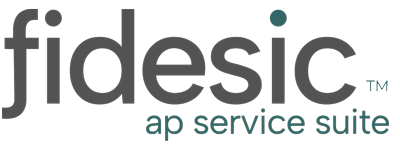4 Skills to Help Accountants Succeed in an Automated World
If you have automation anxiety, you're not alone, but the good news is, there are new opportunities emerging as automation matures and there are skills you can use to grow in your current role and keep up with change. In this post we will look at 4 skills accountants can work on to beat automation anxiety, but let's start with a quick definition.
What is Automation Anxiety?
Automation anxiety is the feeling of stress or fear that your job or social function will become obsolete as humans use more bots and software to do more things. Fear of automation is growing among accountants, but there are a lot of reasons not to fear automation.
While we have reached the automation tipping point in most business sectors and roles, the robot uprising is a long way away, and probably never going to happen. This is speculation of course, but take spreadsheets for example. There are many solutions to reduce manual entry in spreadsheets, but skilled experts with software like Excel are going to be highly valuable in accounting for a long, long time.
On the other hand, automation technology like accounts payable automation eliminates mundane, tedious tasks and opens the door for accounting teams to help drive more strategic decision making. Learn more about the changing role of CFOs.
Still, traditional staples of the accounting function are changing as a result of automation and today's accountants are more reliant than ever on soft skills to take on tasks like management, business advisory and new revenue development. Let's look at some of these skills in depth.
4 Skills to Help Accountants Succeed in an Automated World
We did a bit of research and came up with 4 key skills accountants can develop to kick their fear of automation and transition into their evolving role.
1. Emotional Intelligence
This is all about the human touch. Historically accountants were often trained to remove emotion from their equations and simply crunch numbers to produce accurate balance sheets and reporting.
“Emotional intelligence can't be automated and it's critical to serving your clients or enterprise stakeholders”
While accuracy and attention to detail will always be valued skills among accountants, emotional intelligence will become increasingly important as the becomes more advisory. Emotional intelligence can't be automated and it's critical to serving your clients or enterprise stakeholders.
“The one thing that now and into the future will differentiate one accountant from another is not numeracy, but their ability to manage client relationships,” said Rachel Green with The Emotional Intelligence Institute in an article at InTheBlack.com. “They have to perform a different role – to be more client-facing and to offer advice, which means being able to really understand the client and what they need, to explain it and then motivate them to do what's required.”
2. Creative Thinking
Many people who are attracted to accounting professionally don't see themselves as “creatives.” Some accountants may even cringe at the thought of being asked to do something creative, but creative thinking is about more than arts and crafts and there are many creative accountants among us.
“Creativity is a skill to develop, not a born-in ability”
Thinking creatively takes practice and creativity is a skill to develop, not a born-in ability. For many accountants, creative thinking can be developed by simply asking a question: What more could I be doing for my customer/business? That's according to an article from the Journal of Accountancy.
“Historically, people would not associate creative thinking with accounting, and maybe they still don't. But I think it's trending in that direction" said CPA Luke Selvig, in the article. "CPAs are doing so much more than taxes and auditing now. In our firm, we do a lot of consulting. A lot of it is looking forward to help people tackle issues that may arise."
Similar to the previous skill of emotional intelligence, accountants can develop creative skills by simply asking more about clients and colleagues. This helps gauge client needs and find solutions to problems for them they which might have otherwise been overlooked.
Creative thought can also help accountants prepare and adapt to changes in their profession, which brings us to our next point…
3. Adaptability
Change is the only constant, and it's constantly accelerating. In order to survive in rapidly changing times, companies need to be able to adapt quickly to new working paradigms and new ways of delivering their goods or services. Automation technology is a primary way for companies to adapt their processes. So it makes sense that accountants need to be adaptable to keep up with change.
“Accountants can become more adaptable by keeping up with evolving trends, planning ahead and thinking about the future,” said an article from Maryville University's business school. “Individuals might feel stressed when faced with unexpected difficulties, but having the ability to adapt and determine alternative options helps the best accountants cope with change.”
With ever-changing tax laws and other regulations, accountants also need to adapt to perform their minimum job function.
Successful CFOs and other corporate accountants will also become thought leaders and influence new ways of doing business to keep their companies adaptable.
4. Problem Solving Skills
Accountants are known for their financial and analytical thinking. These skills are invaluable in problem solving situations, and they are skills that many clients and corporate colleagues lack.
“Problem solving skills for accountants are so valuable because businesses are full of problems that need solving – and almost all business problems have some kind of financial impact,” said an article at SoftSkillsforAccountants.com “Therefore accountants with problem-solving skills are highly valuable.”
The article goes on to discuss the value of lateral thinking. Lateral thinking is simply a manner for solving problems that involves ideas that can't be arrived at by following a step-by-step process. Lateral thinking is a more creative type of problem solving, so again, we need to visit the skill above--creative thinking.
“Delivering problem solving skills to clients is often the difference between being a good accountant and being a great accountant”
Having great ideas to solve problems is just the first step to problem solving. Being able to make a case for your solution proposals is just as important. This will require some emotional intelligence to be successful as there are inevitable office politics and competing priorities among corporate leaders.
For CPAs, delivering problem solving skills to clients is often the difference between being a good accountant and being a great accountant.
Conclusion
All of these skills overlap and rely upon each other to form a soft skill set that can help accountants succeed in the Next Normal.
“There are big opportunities for the savvy accounting pros who develop their soft skills while maintaining their bread-butter skills”
While automation anxiety is understandable, there are many reasons to be excited about the future of accounting. With the changing role of accounting, there are big opportunities for the savvy accounting pros who develop their soft skills while maintaining their bread-butter skills of analytical thinking, accuracy and precision, attention to detail, auditing and so on.
If you are financial leader for a business and you are trying to adapt to the changing world, accounts payable automation is a great place to start.



